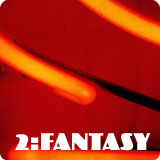 Topic is our go at revitalizing public writing. We tackle one theme at a time. We have no staff writers. Instead, we discover the widest range of thinkers and doers on any given subject. We take the people you read about, and have them contribute themselves. Better yet, we find the people you haven't read about and never would. We have no hang-ups about where the writing comes from so long as it fulfills our mission: to provoke thought and expand the variety of voices currently in print. There aren't many places where you'll see a Nobel Prize Winner trading lines with a male prostitute from the streets of Prague. Amidst stale dialogues by the same old crew of pundits, thinkers, movers and sometimes shakers, Topic is a whole new bag. 

Topic Magazine is a kaleidoscopic new British literary review, still in its infancy and edited by a bunch of precocious Cambridge graduate students. Not since Granta or the original Grand Street has there been such an original and absorbing new lit mag. Reading it is like letting your mind play; a totally pleasurable intellectual experience without the hip, stylish, babyish annoyances of the average new publication. As does Granta on occasion, Topic takes a subject ("War" in its first issue, "Fantasy" in its second) and gets two dozen or so writers and thinkers – sometimes just individuals with stories to tell – to come up with a turn on it. Some of the pieces are silly, but even those have something to offer – some amusing tidbit, an interesting attitude, a big literary voice, a deeply weird idiosyncrasy to reveal. Best of all, the pieces are bite-size and palatable. Topic is like a chocolate sampler for the mind. Here's a run-through of the CVs of some contributors to the Fantasy issue: A poet, an anorexic writer, a classics professor, a graphic designer, a British knight, an English Civil War recreator, a professor of cognitive science, a Dutch photographer, a computer programmer; plus David Leavitt (the novelist), Steve McCurry (the photographer), a Ukrainian male prostitute and an American submarine-builder/restaurateur. The least self-conscious and possibly best piece in the issue – although there is material that is much more serious – is the one from David Gibbons, the English Civil War re-enactor. Gibbons is a man who, on his own admission, "spends much of my time clad in archaic costume, speaking in the English of three hundred and fifty years ago and pretending, along with several thousand like minded characters, to be a soldier in the English Civil War." Her works in the Torrington 1646 Civil War Heritage Centre in Devon, and plays "Robert de Gilbert, turncoat musketeer late of Lord Hopton's Western Army and now under the command of Lord Fairfax." The piece is written with a sense both of decency and of the ridiculous, and yet has an utter delight in absurdity and lack of real embarrassment that makes one think of John Cleese's best performances and characters. What a job this would be for Basil Fawlty. Gerda Reith on "Gambling's Dark Secret" provides a brief journey into the world of compulsive gamblers (it's not reporting really, but an essay, as are many of these pieces), and she reminds one of Gogol's famous quote: All men are equal at cards. Marc Herman offers a "Letter from Java," a wonderful piece about the worlds of difference between cultures on the two sides of the Pacific. Of the financial deal he strikes with his Indonesian "guide" (whom he agrees to pay $10 a day), Herman writes, "He had no idea how little I was paying him; I had no idea how lavishly I was paying him. We walked off toward the Sultan's Palace in usefully mutual ignorance." Steve McCurry's photos of the Subcontinent and of the Middle East are very beautiful and respectably reproduced. There is so much more that is valuable, fun and a pleasure to read at a gulp here: a submarine searching for the Loch Ness monster (it goes nose down in the deep); Leavitt's essay on coincidence; "Vladislav's" memoir about being a male hooker in Prague; Jamie Campbell's narrative about pretending to be the writer Alex Garland; Julian Dibbell's amazing, trippy rumination on the former slave who first explored and mapped Mammoth Cave in Kentucky, and on how those maps and caves were translated into one of the first computer fantasy games. Topic is edgy without self-consciousness, meta without dopey complications. No magazine I've read in the past year has been anywhere near as consistently intelligent or fresh. — Amy Wilentz, The Nation, Jan 13/20
Back to Top | In This Issue | Subscribe to Topic
 |

